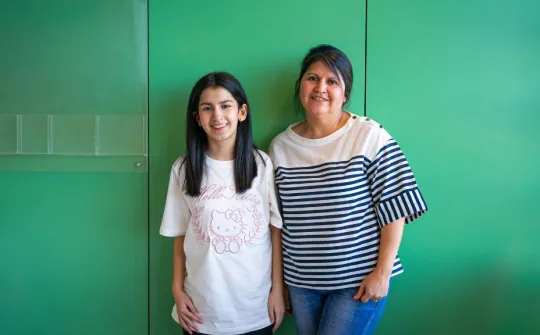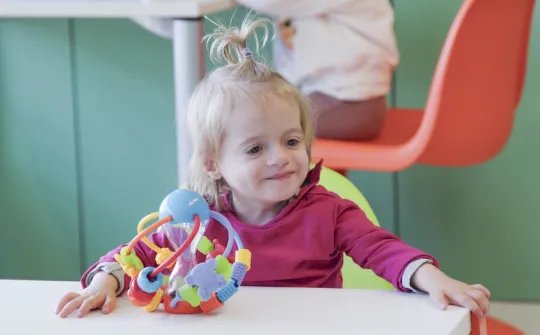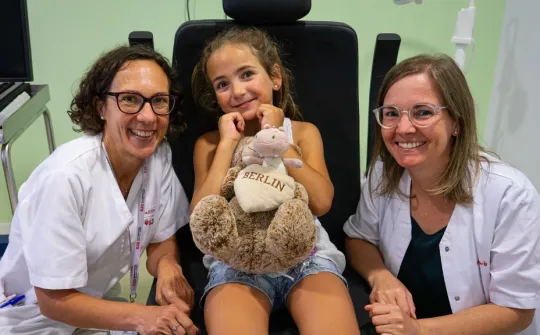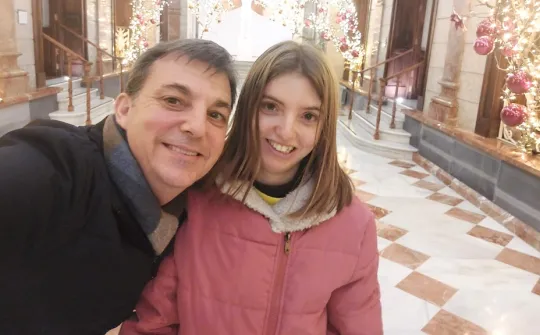“I was born with spina bifida and a neurogenic bladder. Now I live the same life as any other young person of my age”
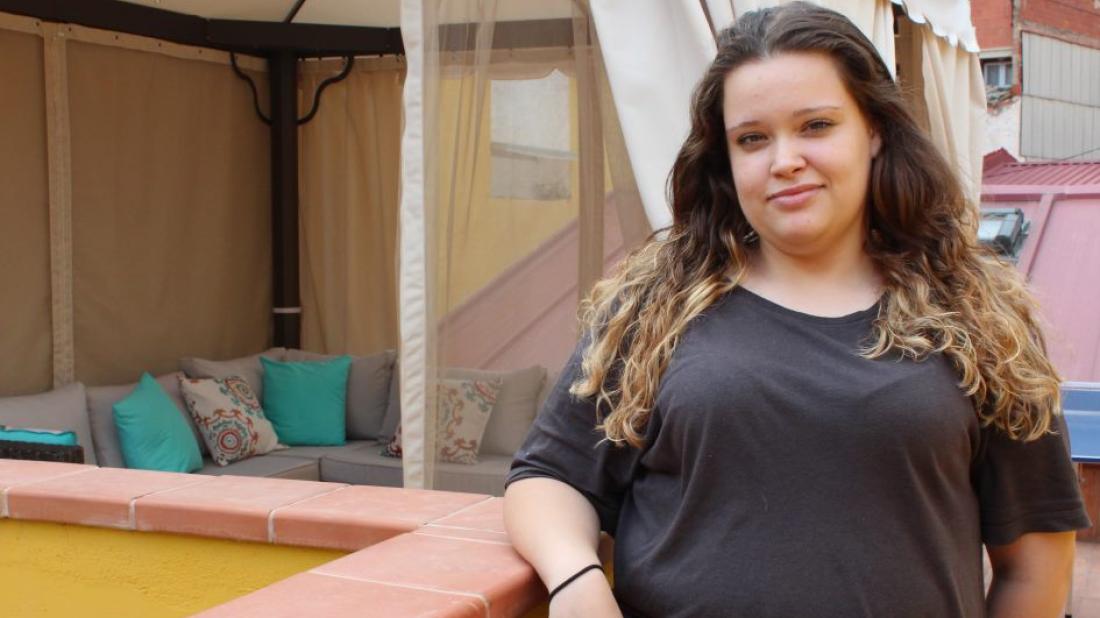
Araida Sánchez, one of the patients of the Urology Unit at SJD Barcelona Children’s Hospital, explains how she has been treated since her birth
Mari, Araida’s mother, was eight-months pregnant when her local hospital detected that the baby she was due to give birth to had spina bifida. They immediately referred her to the SJD Barcelona Children’s Hospital, where the Gynaecology and Obstetrics Department decided to schedule a Caesarean to minimise the risks entailed with the birth of the girl. When she was only three days old, Araida underwent an operation to close her spinal column, which was performed by the Surgery Department.
After the surgery, Araida developed hydrocephalus—a common complication in patients who suffer with spina bifida, and she required another operation to insert a drainage valve. The brave young girl was finally discharged from hospital after undergoing five spine and cranial drainage operations. According to her mother, these first few days after her birth were difficult for the whole family.
From then on, the Hospital’s Paediatric Urology Unit performed regular follow-ups on the little girl’s progress, given that, as Araida grew older, more difficulties associated with spina bifida appeared. These included urinary continence problems at first, which were later followed by fecal continence problems. The disorders, in fact, had been present from birth, but became apparent when the girl had to stop wearing nappies. It was possible to resolve the urinary continence problem using intermittent bladder catheterization.
Solving the issue of fecal incontinence proved a little more complicated. In this case, doctor Luis García Aparicio suggested that the family try anal irrigation, since the girl’s age at the time (12 years old) allowed her to have certain autonomy to control the system. Araida was the first paediatric patient in the Hospital to use this method of intestinal cleaning.
Transition to adult life and Araida’s future
When she was 18 years old, the patient underwent plastic surgery to remove the scars left from the operations she had when she was just a few days old. Araida is currently 19, and last year she made the transition to the adult hospital where she is now being followed-up by other experts: “I miss Luis, my regular doctor, and Chelo, the Urodynamics nurse; but this is just another step in my journey towards progress”, she said.
Her life is similar to that of any other girl of her age, apart from the fact that she sometimes suffers from headaches and has to exercise and strengthen her legs in order to mitigate the effects of the congenital problem. Over the course of these years, Araida made the decision to actively participate in the Catalan Association for Spina Bifida and Hydrocephalus, and is in contact with young people who have experienced the same problem—sometimes via telephone calls, in the case of patients living outside Barcelona or in South America.
Some of the challenges Araida is currently embracing are to continue with her studies and to live for a few months in a shared flat with friends from the association. “I want to try and manage by myself, so that I’m not scared of living independently in the future”, explained Araida. She also wants to see the world: “When I was younger I never considered travelling, but now I know that I would be able to do it if I take some medicines and the catheter. A while ago I decided that I wanted to live the most normal life possible, and I think that I’ve managed to do it.
Nowadays, the number of cases of spina bifida, such as that of Araida, has dropped significantly . This is due to the folic acid supplements taken by women during pregnancy, which help to prevent the disorder.
